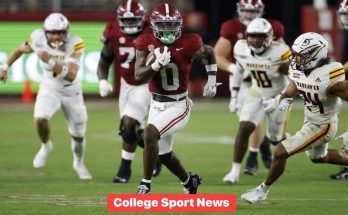The last six months have been draining, super toxic for everyone. The fact that I was traded a week before the season was really outrageous and rough,” Micah Parsons admitted with visible frustration following his first game as a Green Bay Packer. The sentiment was raw, unfiltered, and resonated with fans who have been closely following the drama surrounding one of the NFL’s most talented and high-profile defensive players. For weeks, rumors swirled about a potential move, whispers in locker rooms and headlines across sports media suggested that Parsons’ time with the Dallas Cowboys might be coming to an end. When the trade finally materialized, the shockwave was felt far beyond the Cowboys’ fanbase. Parsons, a dynamic and highly decorated linebacker, was suddenly wearing a new jersey, adjusting to a new city, a new playbook, and a new set of expectations almost overnight.
Transitions of this magnitude are never simple in professional sports, but the timing of this trade made it particularly harsh. A week before the season begins is not an ideal moment for any player to start fresh with a new team. Parsons had spent his early years in Dallas building chemistry, understanding the nuances of the defensive schemes, and connecting with teammates both on and off the field. Those bonds, while professional, are also deeply personal, and uprooting all of that at the last minute is emotionally taxing. Yet, Parsons did not shy away from acknowledging the difficulties openly. In the post-game press conference, he was candid, speaking with the kind of honesty that fans rarely get to hear from athletes under the intense scrutiny of media lights and social platforms.
The game itself marked a crucial moment for Parsons, not only because it was his debut with Green Bay, but because it symbolized his resilience and adaptability in the face of unexpected challenges. In a league where continuity and familiarity often dictate performance, stepping into a new system with minimal preparation time is a daunting task. Parsons’ ability to read plays, communicate with his defensive unit, and execute at a high level under such circumstances speaks volumes about his skill set and football IQ. Analysts and commentators alike noted that, despite the logistical chaos leading up to the game, Parsons demonstrated flashes of the dominance that made him a household name in Dallas. Tackles were sharp, his presence in the backfield disruptive, and his leadership qualities began to shine almost immediately.
However, the mental and emotional toll of the previous months cannot be understated. Parsons’ admission of the past six months being “super toxic” likely encompasses more than just the trade itself. Media speculation, fan reactions, and the constant barrage of rumors would be enough to destabilize any player, no matter how talented or mentally resilient. For a player of Parsons’ caliber, accustomed to performing at elite levels and setting high standards for himself, these distractions can become a heavy burden. Yet, despite the negativity, Parsons’ focus on the field and his determination to make an impact with his new team were clear indicators that he is channeling frustration into motivation rather than allowing it to become a roadblock.
The context of this trade is also significant when considering the broader implications for both the Cowboys and the Packers. For Dallas, losing Parsons so close to the season opener is a shock to the system, as he had been a cornerstone of their defense. The Cowboys’ front office faced criticism for the timing and handling of the situation, with fans questioning the rationale behind a move that disrupted team chemistry and left a notable gap in their defensive lineup. Meanwhile, Green Bay gained a superstar, but the integration process would not be seamless. Parsons’ transition involves not only understanding the playbook and aligning with coaching strategies but also building trust and cohesion with his new teammates—a process that can take weeks or even months in some cases. Yet, Parsons’ performance in his debut suggests that he is more than capable of navigating these hurdles effectively.
Beyond the tactical and strategic dimensions, Parsons’ personal reflections reveal a human side to professional sports that often goes unrecognized. Athletes are frequently portrayed as invulnerable, capable of shrugging off trades, injuries, and media scrutiny without visible impact. Parsons’ candid acknowledgment of the emotional toll reminds fans that even elite athletes experience stress, disappointment, and anxiety in response to sudden career shifts. His ability to articulate these feelings publicly is notable, as it fosters empathy and a deeper understanding of the human dynamics at play within professional sports. In a culture where athletes are sometimes pressured to maintain a façade of stoicism, Parsons’ openness is refreshing and instructive.
The debut game also highlighted the competitive mindset that Parsons brings to every situation. Despite the challenges leading up to his first appearance as a Packer, his performance exhibited the characteristic energy, aggressiveness, and tactical awareness that have defined his career. Observers noted his quick adjustments to Green Bay’s defensive schemes, his timely interventions in key plays, and his instinctive ability to read opposing offenses. These traits not only demonstrate his individual talent but also underscore his capacity to elevate team performance, even when circumstances are less than ideal. Parsons’ on-field intelligence and adaptability are assets that the Packers will likely rely upon heavily as the season progresses, and his initial performance provides a promising glimpse of what might be expected moving forward.
Social media reactions to Parsons’ comments and performance were immediate and passionate. Fans expressed admiration for his resilience, while also speculating about the long-term impact of the trade on both the Cowboys and Packers. Some commentators framed Parsons as a potential game-changer for Green Bay, arguing that his presence could transform the team’s defensive capabilities and create new strategic opportunities. Others focused on the human element, discussing the pressures and emotional challenges associated with sudden trades and the ways in which athletes cope with abrupt life changes. Across platforms, Parsons’ debut sparked conversation not only about football but also about leadership, adaptability, and the importance of mental toughness in high-stakes environments.
It is also worth noting the broader context of Parsons’ career trajectory leading up to this moment. As a highly decorated linebacker, Parsons has been recognized for his explosive speed, tactical intelligence, and ability to influence the outcome of games. His time with the Cowboys solidified his reputation as one of the premier defensive talents in the league, and his early career accolades have set high expectations for continued performance. Yet, the recent trade introduces a new chapter, one in which Parsons must prove that his skills and leadership are transferable across team environments. The debut game is just the beginning of this journey, and his reflections suggest a player who is both aware of the challenges and determined to rise above them.
Moreover, Parsons’ comments provide insight into the culture and pressures of professional football. Trades, media scrutiny, and the relentless pace of the NFL are aspects of the game that can weigh heavily on players, even those with elite physical and mental capabilities. Parsons’ forthright acknowledgment of these pressures—describing the past six months as draining and toxic—invites a broader conversation about athlete well-being and the importance of mental health support within professional sports organizations. The ability to maintain peak performance while navigating such challenges requires a delicate balance of focus, resilience, and emotional intelligence, and Parsons appears to be negotiating this balance with honesty and determination.
Looking ahead, the implications of Parsons’ trade and his debut performance will unfold over the coming weeks and months. Green Bay’s coaching staff will need to optimize his integration into their defensive schemes, leveraging his skills while managing the pressures associated with high expectations. Parsons’ teammates will also play a critical role in supporting his transition, fostering communication, trust, and collaboration on and off the field. The debut game suggests that Parsons is capable of quickly adapting to new circumstances, but sustained success will require ongoing effort, strategic alignment, and mutual support within the team structure.
Finally, Parsons’ reflections and debut serve as a reminder of the human dimension behind professional sports narratives. While fans and media often focus on statistics, plays, and outcomes, the personal experiences of athletes—marked by challenges, transitions, and emotional intensity—are equally important. Parsons’ willingness to articulate his experiences, to acknowledge the difficulties of the past six months, and to demonstrate resilience on the field offers a nuanced perspective on what it means to navigate professional sports at the highest level. It is a story of adaptation, perseverance, and the complex interplay between talent, circumstance, and emotional fortitude.
In conclusion, Micah Parsons’ first game as a Green Bay Packer was more than just a debut—it was a testament to resilience, adaptability, and determination in the face of unexpected upheaval. His candid reflections on the past six months shed light on the emotional and psychological dimensions of professional football, revealing a player who is both human and extraordinary. Despite the challenges of being traded a week before the season, Parsons’ on-field performance showcased his elite abilities, his football intelligence, and his capacity to elevate team performance under pressure. The road ahead will undoubtedly present further challenges, but if his debut is any indication, Parsons is prepared to embrace this new chapter with the same intensity, focus, and resilience that have defined his career from the start. For fans, analysts, and teammates alike, Parsons’ journey serves as a compelling reminder of the complexities of professional sports, the importance of mental and emotional fortitude, and the remarkable talent that can thrive even in the most challenging circumstances.



